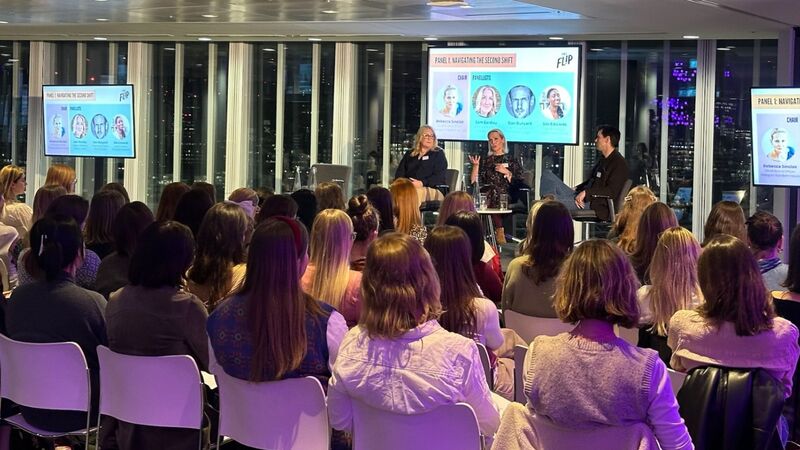You are viewing your 1 free article this month. Login to read more articles.
RELX's Engstrom tops industry 'rich list'
Three chief executives of book industry conglomerates had compensation packages which exceeded the equivalent of $10m last year, putting them in the upper echelon of the c.e.o. remuneration league for all industries, not just publishing and bookselling.
Unsurprisingly, all of the $10m-plus c.e.o.s lead businesses at the very top of global publishing’s league table: Erik Engstrom [pictured above], who took home £10.5m ($14.2m) at RELX, the world’s second-biggest publisher; James Smith ($13.4m) heads up third-placed ThomsonReuters; while Nancy McKinstry (€11.3m, or $13.3m) is the boss of fourth-placed Wolters Kluwer.
Our c.e.o. pay chart can be seen as an indicative snapshot and not a truly comprehensive view of global executive pay, owing to some data gaps. Regulations vary from country to country, but generally private companies are not compelled to publicly reveal compensation packages for their heads (In Britain, companies are required to show their top director’s pay - but that person need not be named). Presumably, Thomas Rabe and Markus Dohle are on whopping great pay packages, but Bertelsmann and its Penguin Random House subsidiary are not required to disclose what their respective bosses earn.
The chart also rather unfairly shines a light on the UK and North American publicly traded companies as regulatory provisions require somewhat robust executive compensation data; only three of the 20 c.e.o.s here are from firms headquartered outside the Anglophone world.
The chart is executive compensation for the 2016 fiscal year as per companies’ annual reports, not net worth, which is why Amazon’s Jeff Bezos is 16th on the list with a meagre $1.7m. In July this year, it was widely reported that the Amazon founder’s fortune hit $90.6bn, enough for him to surpass Bill Gates as the richest person in the world following a spike in his company’s share price. This lasted only a few hours as Amazon’s stock dipped the next day, but the calculations were based on Bezos’ 79.9 million shares in Amazon stock (meaning he owns roughly 17% of the company). At this writing, Forbes has poor old Bezos’ net worth down to just $72.3bn, enough for him to be only the third richest person in the world.
In 2011, Bezos asked the Amazon board to freeze his base salary at the cut-rate $82,000, and since then he has received no cash bonuses, stock awards or equity compensation (although Bezos did sell $1bn in Amazon stock early this year to fund his Blue Origin space flight company). The extra $1.6m Bezos received last year was for travel and security services.
Jargon busters
C.e.o. remuneration is an often complicated business, with a series of benefits, peformance-based incentives, stock awards and pension schemes added to salary. Engstrom, for example, earned £1.13m in weighted incentives based on targets for RELX’s revenue, profit, cashflow and various other key performance objectives: in 2016 he achieved 102.1% of these goals. He also had a pension of £847,000, benefits of £73,000 and stock awards worth almost £7.3m.
Engstrom’s compensation was actually reduced by 7.5% from 2015, though he moved up a spot to become the fifth best-paid c.e.o. of FTSE 100 companies (advertising giant WPP’s Sir Martin Sorrell was top, on £48.1m). In fact, that drop is part of a trend, though RELX is slightly behind the curve - FTSE 100 c.e.o. pay declined by 17% overall in 2016, according to a report by HR body Chartered Institute of Personnel and Development and campaigner High Pay Centre. Still, drop or not, there is quite a gulf between Engstrom and the bulk of his employees. Salary comparison website Glassdoor says the average senior editor at Elsevier in the UK earns £36,000 per annum; it would take them almost 271 years to make what Engstrom earned in 2016.
Barnes & Noble investors may look at this chart with gritted teeth. Ex-c.e.o. Ronald D Boire lasted less than a year before being ousted by the board, yet took home nearly $8.6m, the bulk in share awards (B&N has not announced any severance package for Boire, so there could be yet more money coming his way from the retailer). The average entry-level bookseller at B&N makes around $19,000 a year, and would need four and half centuries to earn $8.6m.
Perhaps the least shocking thing about this chart is that there is a huge gender gulf, with McKinstry and Indigo Books & Music’s Heather Reisman the only women on the list. None of the top 20 hail from a black, Asian or minority ethnic background.
| EXECUTIVE | COMPANY | LOCATION | BASE SALARY | TOTAL (1) | TOTAL (2) | |
|---|---|---|---|---|---|---|
| 1 | Erik Engstrom | RELX | UK/NL | £1,131,000 | £10,563,000 | $14,170,790 |
| 2 | James Smith | ThomsonReuters | Can | $4,243,020 | $13,412,100 | $13,412,100 |
| 3 | Nancy McKinstry | Wolter Kluwer | NL | €1,312,000 | €11,301,000 | $13,317,012 |
| 4 | Ronald D Boire* | Barnes & Noble | US | $780,000 | $8,592,806 | $8,592,806 |
| 5 | Stephen Clarke | W H Smith | UK | £550,000 | £5,244,000 | $7,034,942 |
| 6 | Dan Knotts | R R Donnelly | US | $781,250 | $6,471,797 | $6,471,797 |
| 7 | Mark Allin* | John Wiley | US | $738,000 | $4,706,063 | $4,706,063 |
| 8 | Richard Robinson | Scholastic | US | $970,000 | $4,622,330 | $4,622,330 |
| 9 | Stephen Carter | Informa | UK | £817,100 | £3,291,476 | $4,415,993 |
| 10 | Arnaud Lagardere | Lagardere | FR | €1,140,729 | €2,851,822 | $3,360,058 |
*Resigned or departed their position since August 2016. (1) Total remuneration includes benefits, share awards, cash bonuses and other compensation. (2) Total remuneration converted to US$ (mid-market rate on 31.12.16 for comparison).



















